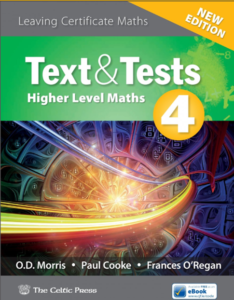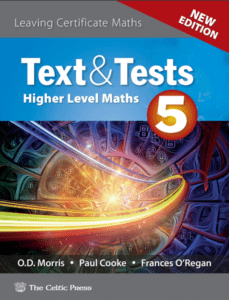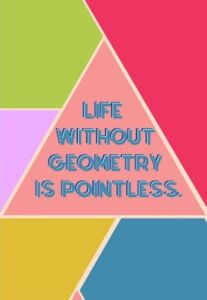
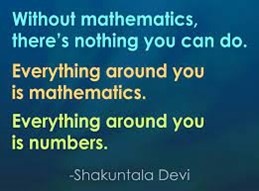
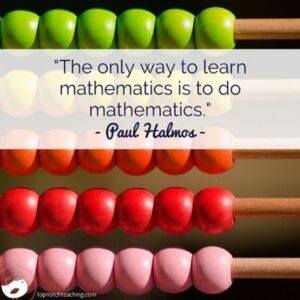
At Gort Community School, we view mathematics as a skill for life. A skill which equips pupils with a uniquely powerful set of tools to understand and engage with the world around us. We strive to enable pupils to become fluent in the fundamentals of mathematics in order that they develop conceptual understanding and the ability to recall and apply knowledge rapidly and accurately.
Maths Personnel
The Maths department has a staff of twelve qualified teachers who possess extensive expertise and experience. All staff have been involved in many in-career development and teaching workshops recently for the syllabus The department has a dedicated subject co-ordinator. Regular meetings take place, exploring ways of maintaining high standards of teaching and learning and developing Maths within the school.
Junior Cycle Maths
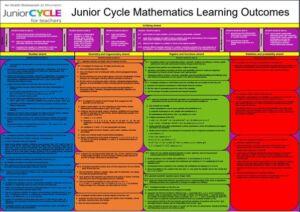 Click here for the Junior Cycle Mathematics Learning Outcomes
Click here for the Junior Cycle Mathematics Learning Outcomes
This mathematics specification provides students with access to important mathematical ideas to develop the mathematical knowledge and skills that they will draw on in their personal and work lives. This specification also provides students, as lifelong learners, with the basis on which further study and research in mathematics and many other fields are built.
The specification is underpinned by the conception of mathematics as an interconnected body of ideas and reasoning processes that students negotiate collaboratively with teachers and their peers and as independent learners. Number, measurement and geometry, statistics and probability are common aspects of most people’s mathematical experiences in everyday personal, study and work situations. Equally important are the essential roles that algebra, functions and relations, logic, mathematical structure and working mathematically play in people’s understanding of the natural and social worlds, and the interaction between them.
The mathematics specification builds on students’ prior learning and focuses on developing increasingly sophisticated and refined mathematical understanding, fluency, reasoning, computational thinking and problem solving. These capabilities enable students to respond to familiar and unfamiliar situations by employing mathematics to make informed decisions and solve problems efficiently.
Resources can be found at https://www.jct.ie/maths/resources
CBA 1
Students will, over a three-week period, follow the Problem-solving cycle to investigate a mathematical problem.
Problem-solving cycle: define a problem; decompose it into manageable parts and/or simplify it using appropriate assumptions; translate the problem to mathematics if necessary; engage with the problem and solve it if possible; interpret any findings in the context of the original problem.
Some CBA 1 Topics
- Bedroom Makeover €500 spending budget
- Is there a profit to be made from rearing and selling 10, two year old calves?
- Cost of making a birthday cake vs the cost of buying one
- Quickest way from my locker to my Irish/English & Maths room.
- Investigate the pattern in a mosaic tile
- Can I cook dinner for a family of 4 for under €10 a day?
- Cost of changing our school hurling pitch to a full size astro-turf. Would it be financially viable?
- Bus v walk v bike to school (routes and timing/cost)
- A primary school teacher – where would they make more money? Dublin or Gort?
- Is it cheaper for my family to buy 6 hens that provide free range eggs for a family of 5 instead of buying eggs in a supermarket.
CBA 2
Students will, over a three-week period; follow the Statistical enquiry cycle.
Statistical enquiry cycle: formulate a question; plan and collect unbiased, representative data; organise and manage the data; explore and analyse the data using appropriate displays and numerical summaries and answer the original question giving reasons based on the analysis section.
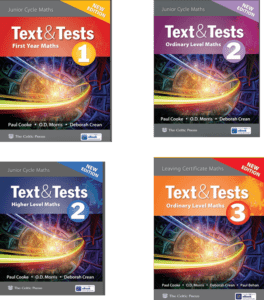
Leaving Certificate Maths

Leaving Certificate Mathematics aims to develop mathematical knowledge, skills and understanding needed for continuing education, life and work. By teaching mathematics in contexts that allow learners to see connections within mathematics, between mathematics and other subjects, and between mathematics and its applications to real life, it is envisaged that learners will develop a flexible, disciplined way of thinking and the enthusiasm to search for creative solutions.
